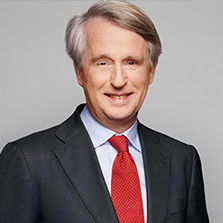
Business travel resurged with vigor in 2022
after two years of coronavirus-induced shutdowns. Bookings soared despite
significant headwinds, including the war in Ukraine, galloping inflation and
lingering anti-Covid restrictions.
But arguably no challenge was greater than a
chronic labor shortage that afflicted the entire travel sector, and arguably
nowhere was that shortage more acutely manifested than at Amsterdam Schiphol
Airport. Once famed as the one-terminal hub through which savvy business
travelers literally went out of their way to transfer, an annus horribilis
transformed Schiphol into an airport passengers endeavored to avoid.
The main problem was a dearth of security
staff. During the summer of 2022, Schiphol revealed it had scheduled 13,500
seats daily above its security handling capacity. “In Amsterdam you need to be
at the airport four hours before departure,” a travel manager for a Dutch
company told BTN Europe in August. “We have had travelers not making it on to
the flight if they arrive three hours ahead. And you can be almost sure your
luggage won’t make it.”
Yet they were the lucky ones. From June onward,
Schiphol made airlines axe flights, or limit seat capacity per flight, to
reduce passenger numbers by up to 22 percent during the worst weeks. Restrictions
remain even now and are expected to last until March 2023.
Presiding over this chaos was Dick Benschop, a
former deputy minister for foreign affairs in the Dutch government and later
senior executive at Shell. Following his lead, other airports also cut
capacity, most notably Frankfurt and London Heathrow.
A second axe taken to schedules in September
forced Benschop’s resignation. Ironically, he continues as a board member of
the Mission Possible Partnership, a group of industry, finance and policy
leaders aiming to achieve net-zero emissions in seven sectors, including
aviation. Schiphol’s security staff crisis inadvertently went some way toward
reaching that target for Dutch aviation.
In another sustainability-related twist which
may prove more significant in the long term than the staff shortage saga, the
Dutch government announced in June 2022 that the annual number of flights
allowable from the airport will be cut to 440,000 from late 2023, compared with
500,000 in 2019, partly to limit environmental impact. Will this trend be
repeated at other major airports as governments strive to meet the same goals
as Benschop’s Mission Possible?